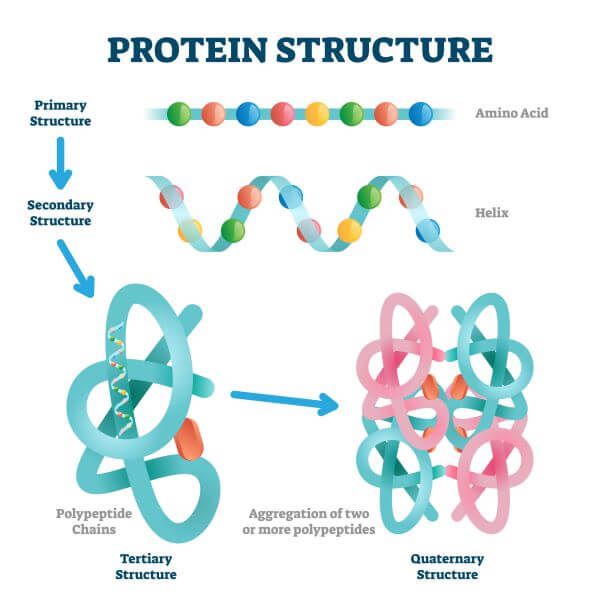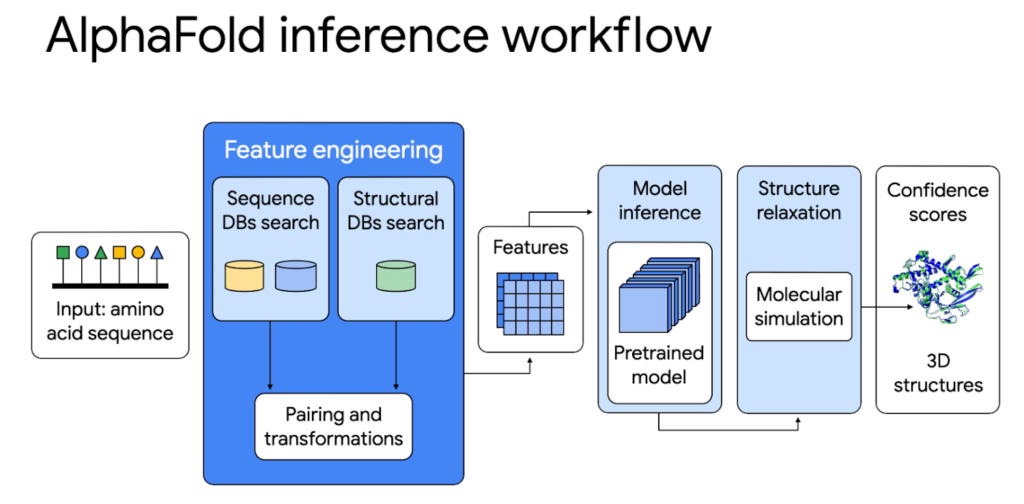Table of Contents
Introduction
Artificial Intelligence (AI) has demonstrated its transformative potential by solving one of biology’s most persistent problems: protein folding. For decades, scientists struggled to predict how proteins fold into their three-dimensional structures, a process crucial for understanding diseases and developing new drugs. Recently, DeepMind’s AI system, AlphaFold, made a significant breakthrough, offering solutions that could revolutionize biology and medicine.
1. Understanding Protein Folding
Proteins are essential building blocks of life, participating in almost every cellular process. They consist of long chains of amino acids that fold into specific shapes, determining their function and activity. Misfolded proteins can cause diseases like Alzheimer’s, Parkinson’s, and cystic fibrosis. Understanding protein folding can provide insights into these conditions and help develop effective treatments.

2. The 50-Year-Old Challenge
Predicting protein structures from amino acid sequences has been a monumental challenge for over 50 years. Traditional methods, such as X-ray crystallography and cryo-electron microscopy, are time-consuming and expensive. Computational methods have struggled with the complexity of the folding process. Despite many efforts, accurate protein structure prediction remained elusive, hindering progress in biology and medicine.
3. The Role of AI in Protein Folding
AlphaFold, developed by DeepMind, utilizes deep learning to predict protein structures with remarkable accuracy. The AI was trained on a vast database of known protein structures and learned to predict new ones. In the Critical Assessment of protein Structure Prediction (CASP) competition, AlphaFold achieved unprecedented accuracy, outperforming all other methods.
How AlphaFold Works
AlphaFold predicts the distances between amino acid pairs and the angles of their bonds using neural networks. By integrating these predictions, the AI constructs an accurate model of the protein’s three-dimensional structure. This approach departs from traditional techniques, leveraging machine learning to solve a complex biological problem.

4. Implications for Medicine and Research
AlphaFold’s success has profound implications. Accurate protein structure predictions can accelerate drug discovery, helping scientists design more effective treatments for various diseases. Understanding protein folding can also reveal mechanisms of different illnesses, leading to new therapeutic strategies. This breakthrough can drive innovation in biotechnology, advancing enzyme engineering and synthetic biology.
5. Challenges and Future Directions
Despite AlphaFold’s groundbreaking achievements, challenges remain. The AI’s predictions need validation through experimental methods, and its applicability to all protein types must be confirmed. Additionally, ethical considerations regarding AI’s role in biology and medicine must be addressed. Ensuring that the benefits of this technology are accessible and used responsibly is crucial as we move forward.
Conclusion
The AI breakthrough in protein folding is a milestone in artificial intelligence and biology. By solving a 50-year-old challenge, AlphaFold has opened new research and innovation avenues, promising to transform our molecular understanding of life. As we continue exploring AI’s potential, this achievement highlights the importance of interdisciplinary collaboration and the remarkable possibilities emerging when technology meets biology.
Stay tuned for more insights and updates in our series on AI advancements and their impacts across various sectors. For further reading, check out our series on AI News here.
FAQs
1. What is protein folding? Protein folding is the process by which a protein structure assumes its functional shape or conformation.
2. Why is protein folding important? Understanding protein folding is crucial for understanding diseases caused by misfolded proteins, such as Alzheimer’s and Parkinson’s.
3. How does AlphaFold work? AlphaFold uses deep learning to predict the distances between amino acids and the angles of their bonds, constructing accurate 3D models of proteins.
4. What are the implications of AlphaFold’s success? AlphaFold’s accurate predictions can accelerate drug discovery and reveal mechanisms of diseases, driving innovation in biotechnology.
5. What challenges does AI in protein folding face? Challenges include the need for experimental validation of AI predictions and addressing ethical considerations such as data privacy and equitable access.
Stay tuned for more insights and updates in our series on AI advancements and their impacts across various sectors. For further reading, check out our series on AI News here.



